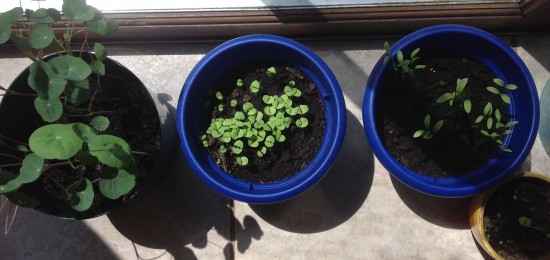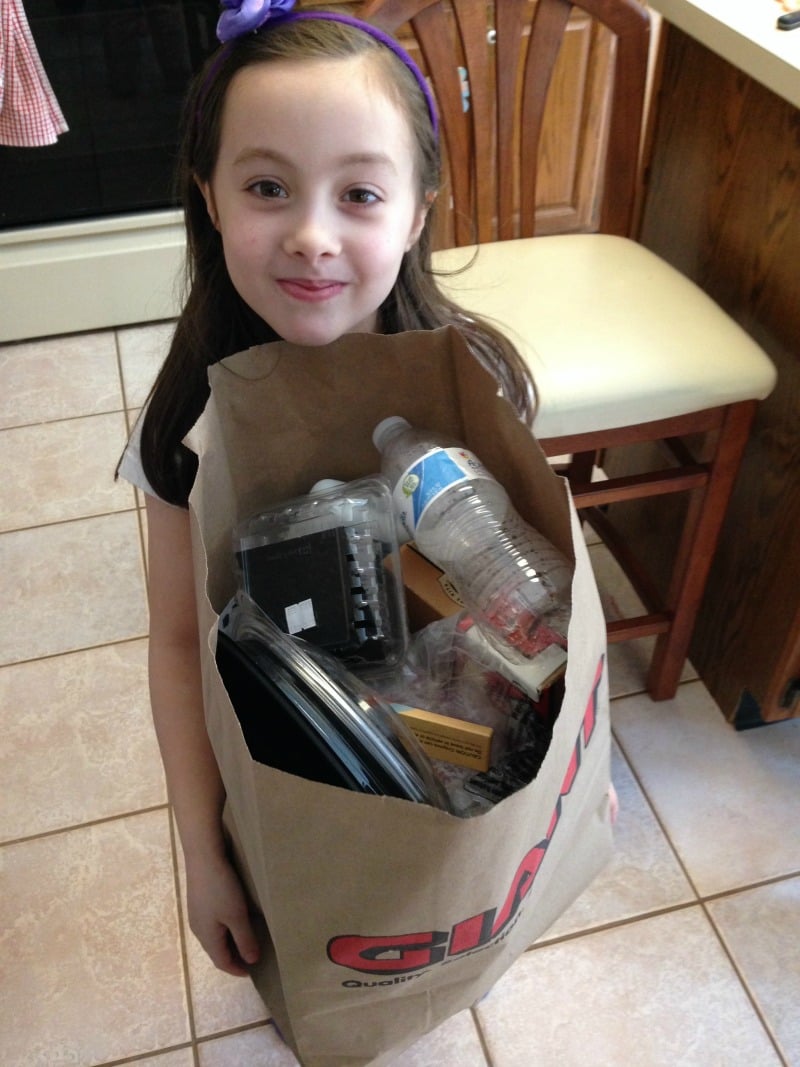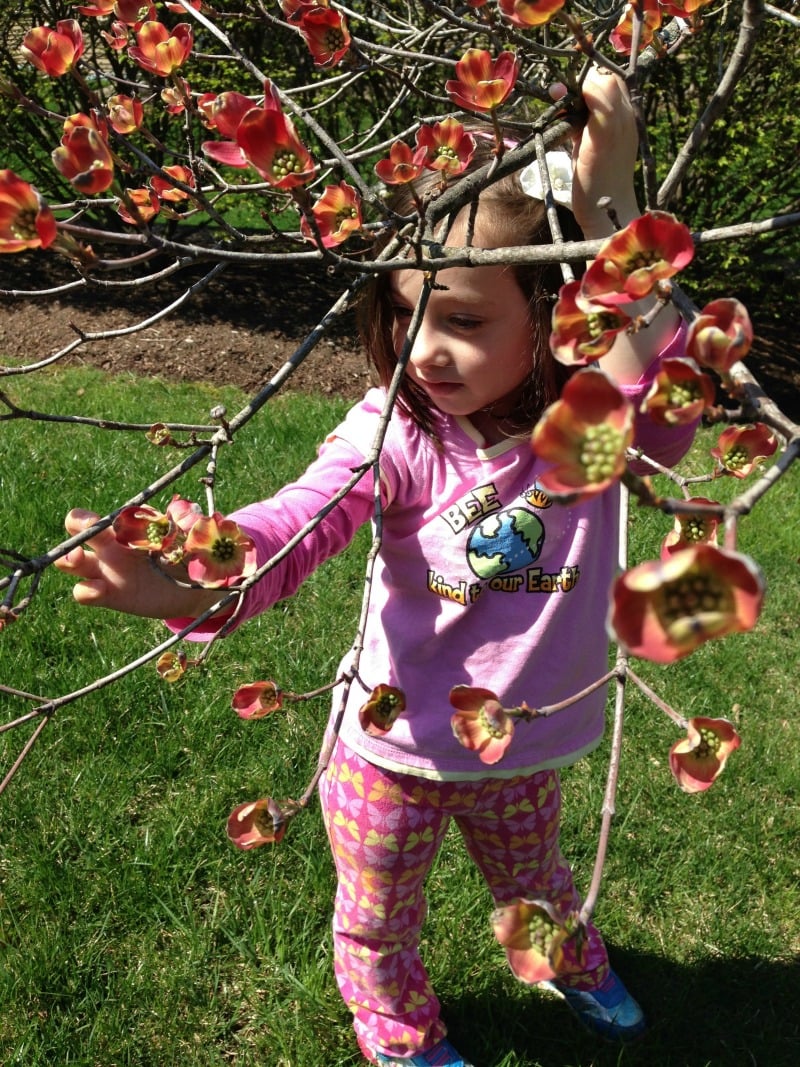Last fall, we were blessed to go to the World Meeting of Families. Of all the inspiring talks, one in particular stood out to me because of its urgent tone. It was from Cardinal Peter Turkson and his summarization of Pope Francis’ encyclical, Laudato Si’. It was then I began to understand that it was so much more than just a manifesto on the environment. These days thoughts of Spring remind me of Earth Day and now thanks to Pope Francis that brings my thoughts to Laudato Si’. Laudato Si’ is Pope Francis’ second encyclical and is also known as “On Care for our Common Home.” As Pope Francis explains to us Laudato Si’ means “Praise be to you.” It comes from the canticle written by St. Francis of Assisi that praises God with all of His Creation, particularly Mother Earth. If you have some time available, you can download the encyclical from the Vatican website. But, if the 180-page document is a bit daunting, check out this great Catholic resource www.focus.org (Fellowship of Catholic University Students). This site can help you slowly digest Laudato Si’ with your kids. It truly is a very accessible document to read as a family.
To care for our common home we need to start with what Pope Francis calls an “ecological conversion.” We can’t separate how we treat Aunt Sally and how we treat the environment. I’ll share a few thoughtful and practical ways Pope Francis suggests we start positively impacting ourselves, our relationships, and then our home, Earth.
- Step away from the stores (Working on ourselves)
Pope Francis makes it very clear that there is a deep connection between our relationship with the environment and the relationship to our fellow humans. To truly convert our hearts toward our home we start with ourselves. Pope Francis warns us, “when people become self-centered and self-enclosed, their greed increases. The emptier a person’s heart is, the more he or she needs things to buy, own and consume. In this horizon, a genuine sense of the common good also disappears” (Laudato Si’ #204). The Holy Father is critical of parents who selfishly waste resources. He adds, “parents can be prone to impulsive and wasteful consumption, which then affects their children who find it increasingly difficult to acquire a home of their own and build a family (#162).
How do we work on ourselves against consumerism? Embrace the concept “less is more.” Let’s try not buying something every time we leave the house or every time we turn on our computers. Our kids get toys for every holiday, every birthday, goodie bags from their friends’ birthday, fast food restaurants, cereal boxes, dentist or doctor visits, prizes for learning, etc. It really is too much, isn’t it? It’s baby steps for me. My basement happens to look like a toy store exploded down there. In attempts to break the habit of impulsive buying, I take pictures of my kids’ clothes and toy bins and keep it on my phone. The photos are a reminder of how blessed I am and deter me from buying that t-shirt on sale. If your kid’s clothes drawers and toy bins are bulging like ours don’t even think of purchasing anything! I’m pretty sure that might fall under what the Pope calls wasteful, compulsive buying some of us tend to do.
- Put that device away (Working on our relationships)
Pope Francis isn’t only talking about the garbage piles that are mounting in hidden, poor areas of the Earth, but also the piles of not so pleasant trash that infiltrates our minds. How often to we check our social media? Do you find yourself checking whenever the kids are occupied? If so, you might be one those souls that experience the “phantom buzzing” when your phone is taken away for any length of time. Pope Francis says, “When media and the digital world become omnipresent, their influence can stop people from learning how to live wisely, to think deeply and to love generously. True wisdom, as the fruit of self-examination, dialogue and generous encounter between persons, is not acquired by a mere accumulation of data which eventually leads to overload and confusion, a sort of mental pollution. Real relationships with others, with all the challenges they entail, now tend to be replaced by a type of Internet communication which enables us to choose or eliminate relationships at whim” (#47).
At home, the emphasis should be human not electronic interaction. We can start with regulating screen time. Many of us probably already have screen time rules, but screens still infiltrate our lives in many ways. Resist the temptation to use the TV or tablet as a babysitter. Let the kids amuse each other the way nature intended. No devices in the car, no movies in that snazzy minivan you have, definitely no tech playing in church! Can’t tell you how shocked I was to see a mom give her kids her smartphone to thumb through pictures during Mass. Of course, we can’t keep our kids in the dark ages, but we can foster human interactions before our kids leave home. Don’t forget the grownups. My Mom won’t let us kids (ages 30 and much above) touch our smartphones during major holidays. Lastly, spouses can easily drift apart by quietly sitting next to each other perusing their own devices instead of being present to each other. With all things, vigilance and moderation is the key.
- Protect and heal our natual environment (Working on our common home)
In the US it seems global warming is a matter of debate. Not so for Pope Francis. He says, “A very solid scientific consensus indicates that we are presently witnessing a disturbing warming of the climatic system. In recent decades this warming has been accompanied by a constant rise in the sea level and, it would appear, by an increase of extreme weather events, even if a scientifically determinable cause cannot be assigned to each particular phenomenon. Humanity is called to recognize the need for changes of lifestyle, production and consumption, in order to combat this warming or at least the human causes which produce or aggravate it” (#23). Laudato Si’ has provided us with practical tips to employ in our homes. They include: avoiding the use of plastic and paper, limiting water consumption, separating refuse, cooking only what can reasonably be consumed, showing care for other living beings, using public transport or car-pooling, planting trees, turning off unnecessary lights and reusing something before discarding it. Pope Francis suggests families consider supporting an organization that provides safe water to those around the world. There are many water initiatives you can find online to participate and donate as a family. Taking these steps reflect generosity and is an act of love.
As a busy mom of three, I used to buy lots of disposable plates so I could do fewer dishes. This was a luxury where I totally disregarded the environment. After reading Laudato Si’, I decided instead of buying these non-reusable items, to invest in more “real” dishes. Sure it’s more work, but my kids can see a marked decrease in our trash and relate that to our love for our common home, Earth. As a family, we’ve also taken on-line tours to learn where are trash ends up. This activity was very educational and spurred on many discussions.
It makes perfect sense that we can’t truly love and defend the Earth if we haven’t developed our love of neighbor. As Pope Francis so well puts it “living our vocation to be protectors of God’s handiwork is essential to a life of virtue; it is not an optional or a secondary aspect of our Christian experience” (#217). He wants us to examine our lifestyle and acknowledge the ways we maybe harming ourselves, each other and the Earth. Let’s take the next step of love and embrace our own ecological conversion.
Copyright 2016 Angela Maria Jaramillo
 About the Author: Angela Maria Jaramillo is a stay at home mom of three young children. She's a cradle Catholic who loves watching those kiddie Catholic cartoons. After her third child, she decided to hang up her lab coat as a research scientist and focus her full attention onto her family. She uses her PhD in Neuroscience and her training as a fellow from Princeton University to foster the love of science in her children.
About the Author: Angela Maria Jaramillo is a stay at home mom of three young children. She's a cradle Catholic who loves watching those kiddie Catholic cartoons. After her third child, she decided to hang up her lab coat as a research scientist and focus her full attention onto her family. She uses her PhD in Neuroscience and her training as a fellow from Princeton University to foster the love of science in her children.
About the Author

Guest
We welcome guest contributors who graciously volunteer their writing for our readers. Please support our guest writers by visiting their sites, purchasing their work, and leaving comments to thank them for sharing their gifts here on CatholicMom.com. To inquire about serving as a guest contributor, contact editor@CatholicMom.com.






.png?width=1806&height=731&name=CatholicMom_hcfm_logo1_pos_871c_2728c%20(002).png)
Comments